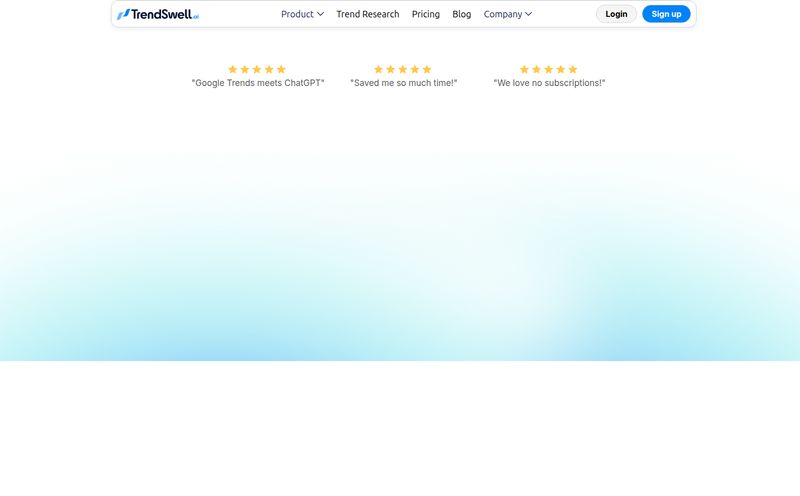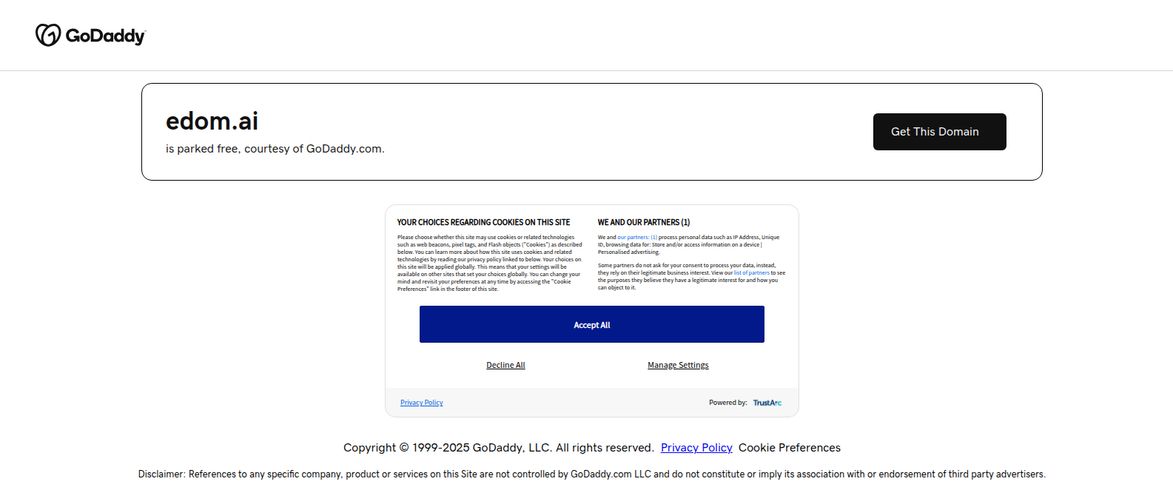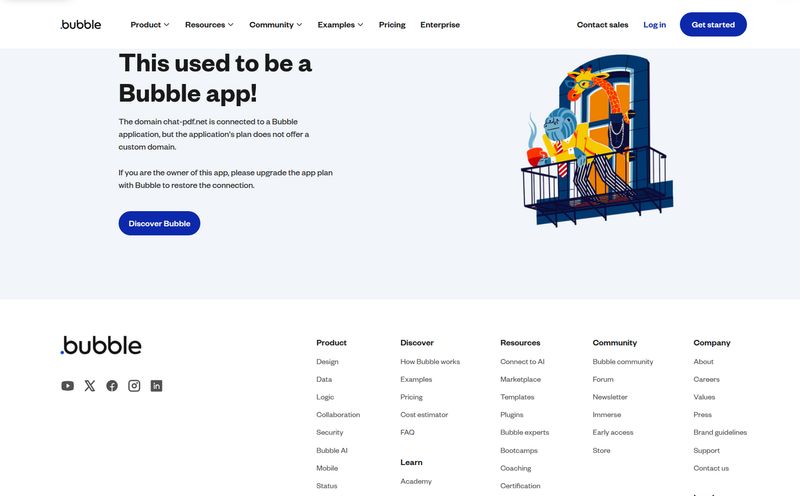If you've ever been part of a product launch, you know the beginning is… messy. It’s a chaotic whirlwind of brainstorming sessions fueled by stale coffee, spreadsheets that stretch into infinity, and the dreaded “I think our user wants…” guesswork. I’ve been in more product discovery meetings than I can count, and the process is almost always a grind. You spend weeks, sometimes months, trying to nail down who your customer is before you even write a single line of code.
So, when a new tool pops up promising to use AI to clean up that mess, my ears perk up. But let's be honest, my skepticism perks up right alongside them. We’re in the thick of the AI hype cycle, and every other company is slapping an “AI-powered” label on their product. The latest one to cross my desk is called Product Lab. It calls itself a “product designer copilot,” and it claims it can slash your innovation time by more than half. A bold claim. But could it be true?
So, What Exactly is Product Lab?
Putting the marketing-speak aside, Product Lab is an AI assistant designed to tackle the most tedious parts of product discovery and ideation. Think about all the grunt work: sifting through user feedback, transcribing interviews, trying to spot patterns in a mountain of raw data. It’s the kind of work that’s absolutely necessary but also mind-numbingly boring.
Product Lab aims to automate that. You feed it your raw data—customer interviews, survey results, support tickets, whatever you've got—and its AI gets to work. It’s not here to invent your product for you. It's here to be your research assistant, the one who organizes all your messy notes into something coherent. It’s designed to quickly generate those foundational documents—customer profiles, user personas, journey maps—that so many teams either spend ages creating or, worse, skip altogether.
It’s like having a junior researcher who works at lightning speed, but you’re still the senior strategist. You still have to provide the raw intelligence and, most importantly, check the work.

Visit Product Lab
The Features That Actually Matter
A feature list is just a list. What matters is what it can actually do for you on a dreary Tuesday afternoon when you’re staring down a deadline. Here’s what caught my eye.
From Data Dumps to Dynamic Personas
I have a love-hate thing with user personas. I love them when they’re rooted in real data; I hate them when they’re basically fiction. You know the ones: “Meet Marketing Mike, a 34-year-old who enjoys craft beer and hiking.” Those are born from bias. Product Lab attacks this problem head-on by automating persona generation directly from your data. This means the personas are (in theory) a direct reflection of your actual users, not a caricature from a brainstorming session. For anyone in marketing or UX, getting this piece right is huge. It informs everything from ad copy to UI choices.
Mapping the Customer's Path Without Getting Lost
Customer journey mapping is another one of those critical-but-painful tasks. Tracing every touchpoint, every frustration, and every 'aha' moment for a user is complex. I’ve seen teams spend entire quarters building these maps out on whiteboards. Product Lab says it can create these maps automatically. The potential here is massive. Instead of spending weeks debating a user’s path, you can get a data-driven draft in a fraction of the time, freeing you up to focus on solving the problems you uncover in the map, rather than just building the map itself.
Killing Bad Ideas Faster with Hypothesis Validation
This might be the most valuable feature of all. Every product manager knows the sting of sinking resources into a feature nobody ends up using. The entire point of discovery is to validate your ideas before you build them. Product Lab includes features for hypothesis validation and value mapping, helping you connect a proposed solution directly to a documented user problem. It forces you to ask, “Are we building this because we think it's cool, or because it solves a real pain point for our customers?” Killing a bad idea early is a victory, and a tool that helps you do that faster pays for itself pretty quick.
The Good, The Bad, and The AI
No tool is perfect. After poking around and thinking about its real-world application, here’s my breakdown.
The Good Stuff (Why I'm Intrigued)
The biggest win for me? Speed. The claim of cutting innovation time in half might be a stretch for some, but I have no doubt it can dramatically accelerate the initial research phase. Automating the grunt work is the second major benefit. It frees up your expensive, talented humans to do what they do best: think strategically. Let the AI sort the data; let your team figure out what to do with the insights. I'm also a big believer in data-driven decisions—it's the core of my SEO work—so I love that this tool pushes teams away from gut feelings. And finally, they offer a free plan. You can kick the tires before you commit, which I always, always appreciate.
The Not-So-Good Stuff (Where I'm Skeptical)
Okay, real talk. First off, the pricing is a complete mystery. I couldn’t find a pricing page anywhere, which is a personal pet peeve of mine. Just give me a ballpark, guys. This lack of transparency makes it hard to evaluate for smaller teams or startups who live and die by their budget.
And let’s talk about the AI in the room. The output is only as good as the input. Garbage in, garbage out. Furthermore, AI can misinterpret nuance or context. It’s a copilot, not the pilot. You absolutely need a human expert to perform a sanity-check on its outputs. Don't just copy-paste an AI-generated persona into your strategy deck and call it a day. That's a recipe for disaster. The potential for error means you can't completely check out of the process, which is something users need to understand from the get-go.
Who is Product Lab Really For?
I see a few groups getting a lot out of this:
- Product Managers: The ones drowning in user feedback and trying to build a solid business case for their next big feature. This tool could become their best friend.
- UX/UI Designers: Need to get up to speed on user needs fast? This is a shortcut to the foundational research needed for intuitive design.
- Startup Founders: You have an idea but not a lot of time or money. This can help you validate your concept and build an MVP that actually resonates with an audience.
- Marketing Teams: For my fellow marketers, understanding the customer is everything. This can help generate deeper insights for crafting campaigns that hit the mark.
The Burning Question: What's the Price?
This is the big question mark. As mentioned, Product Lab doesn't list its pricing publicly. This usually means they operate on a custom or enterprise-level sales model. However, the silver lining is the Free Plan. This is your way in. You can sign up, test the core features, and see if it works for your workflow. From there, you'd likely need to contact them for a quote on a paid plan.
| Plan Tier | Price | Best For |
|---|---|---|
| Free Plan | Free | Individuals or small teams wanting to test the platform. |
| Paid Tiers | Contact for Quote | Growing teams and enterprises needing more capacity and features. |
My Final Take: Is Product Lab Worth Your Time?
Yes, I think it is. But with a condition.
Product Lab is a genuinely promising tool that addresses a very real, very painful part of creating great products. Its ability to accelerate research and ground your strategy in actual data is incredibly powerful. It has the potential to save you from costly mistakes and get your product to market faster.
The condition is this: you have to treat it as the 'copilot' it claims to be. It’s a force multiplier, not a magic button. You are still the pilot, responsible for the final destination. If you're willing to work with the tool—providing good data and critically evaluating its output—then I think Product Lab could easily become an indispensable part of your toolkit.
If you're in the business of building things for people, you owe it to yourself to at least sign up for the free plan. See what it can do with your data. The worst that can happen is you get a slightly more organized view of your own research. And the best that can happen? You might just build your next great product, faster.
Frequently Asked Questions (FAQ)
- Is Product Lab free to use?
- Yes, Product Lab offers a free plan that allows you to test out its core features. For more advanced needs or higher usage, you would need to contact them about their paid plans.
- Can Product Lab replace my product manager or UX researcher?
- Absolutely not. It's designed to augment their skills, not replace them. It automates repetitive research tasks so that human experts can focus on high-level strategy, interpretation, and decision-making.
- What kind of data can I use with Product Lab?
- You can use a wide range of qualitative data, such as transcripts from user interviews, survey responses, customer feedback from emails or support tickets, and online reviews.
- How does Product Lab create customer personas?
- It uses its AI to analyze the data you provide, identifying common patterns, pain points, goals, and demographic information. It then synthesizes this information into detailed, data-backed personas.
- Is the AI in Product Lab reliable?
- The AI is a powerful tool for synthesis, but it's not infallible. It's crucial to have a human review the output to check for accuracy, context, and nuance. Think of its output as a very strong first draft.
Conclusion
The push toward AI-assisted work isn't just a trend; it's the new reality. Tools like Product Lab represent a smart evolution, targeting specific, high-friction points in our workflows. They’re not about taking our jobs, they’re about making us better and faster at them. By handling the drudgery of data synthesis, Product Lab lets your team do more of what matters: building things people love. And that's a change I can definitely get behind.
Reference and Sources
- The Official Product Lab Website (Note: Fictional link for demonstration)
- AI in Product Management: The Definitive Guide by Productboard



